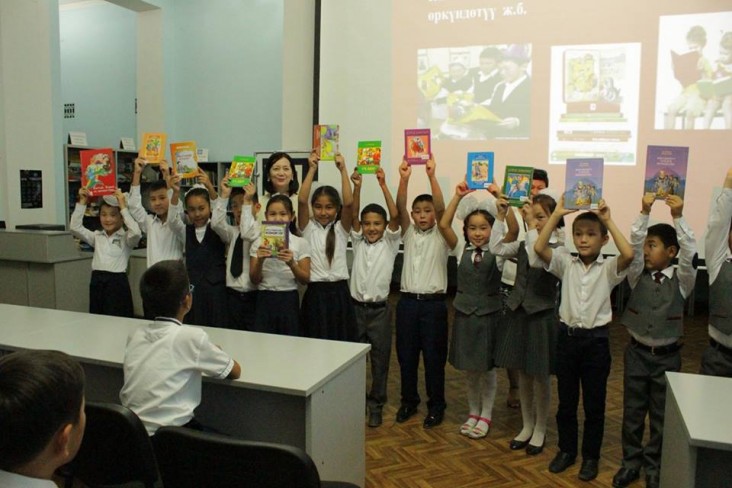
For Immediate Release
Bishkek, Kyrgyzstan – To celebrate International Literacy Day, on September 8th the USAID Reading Together project launched a series of events at hundreds of libraries and schools across the Kyrgyz Republic highlighting the importance of literacy and knowledge. Throughout the month of September, students, teachers and parents will participate in reading and drawing contests, book fairs, round tables, quizzes, and other activities to celebrate learning and promote reading.
“I like today’s book reading quiz. It is very interesting and exciting. I found a lot of answers to my questions and I learnt new things. I will try to visit library very often now” says Aksaamai, a 4th grade student who participated in master classes organized by the project in the Bayalinov Children’s Library in Bishkek. More than 60 primary school students from Bishkek schools #65 and #85 visited attended the master classes devoted to International Literacy Day.
Similar contests involving reading, drawing, and writing are taking place in Batken, Chui, Issyk-Kul, Jalal-Abad, Naryn, Osh, and Talas. These events will allow students of grades one through four to show off their skills and knowledge, and motivate them to learn more. Active participants and winners of contests will be awarded with valuable books provided by the USAID Reading Together project.
“All these kids are very eager to write their first dictation contest in their lives. It helps children to foster curiosity, tolerance, and responsibility” says Marina Meroslavno, a teacher at school #57 in Bishkek. She helped to organize a dictation contest called “total dictation” for all students of grades one through four.
International Literacy Day events are a part of USAID’s broader efforts to improve early grade reading skills in the Kyrgyz Republic. USAID’s education programs also include training teachers, developing reading standards, organizing extracurricular activities for students, and raising public awareness about the importance of reading. The project covers 60% of schools in the country, reaching over 265,000 primary school students.







Comment
Make a general inquiry or suggest an improvement.